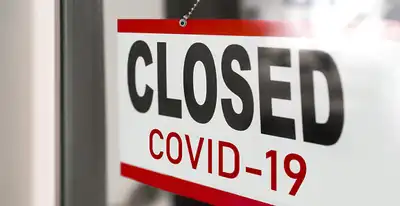When did Lockdown Start in South Africa?

A thirty-eight-year-old man who was a member of a party of 10 persons who had just returned from a trip to northern Italy was the first verified COVID-19 case in South Africa as of March 5, 2020. All 10 individuals were located, quarantined to stop the unique coronavirus from spreading, and tested. Following the confirmation of South Africa’s first COVID-19 case, the national minister of health convened a news conference and released a press statement.
As a result, starting at midnight on Thursday, March 26, the National Coronavirus Command Council has decided to impose a 21-day nationwide lockdown. This is a significant action to prevent infection in millions of South Africans and save thousands of lives.
On social media and in the media, a significant, multilingual, and ongoing effort was launched to inform the public about the coronavirus’s transmission and prevention methods. The educational messages emphasized the need for physical separation, the necessity of hand washing frequently and thoroughly with soap and water (or the use of an alcohol-based hand sanitizer), and how to cover one’s mouth with a tissue or flexed elbow when sneezing or coughing, and how and why people should seek medical attention when any COVID-19 symptoms appear.
- When is the Next Full Moon to Occur in South Africa?
- When is Freedom Day in South Africa?
- When is Easter Weekend in South Africa?
- When is Easter Celebrated in South Africa?
- When is Bosses Day in South Africa?
- When is Avocado Season in South Africa?
- When Does Child Maintenance Stop in South Africa?
- When Do You Start Paying Tax in South Africa?
- When Did Powerball Start in South Africa?
Seventeen COVID-19 cases had been confirmed in South Africa after one week of the epidemic. All seventeen individuals reported mild to moderate symptoms at that point. Sixteen of the affected individuals had returned to South Africa from a nation with a high risk of infection.
For services provided within their purview, every government department has published regulations. Social segregation, such as the closing of schools and the ban on gatherings of more than 100 people, was to be used to minimize contact between groups of people. Also barred were any non-essential travel by government personnel, as well as travel from high-risk nations. The public health campaign to promote good hygiene and COVID-19 prevention was stepped up, and elbow greetings were advised in place of handshakes.
Share This




